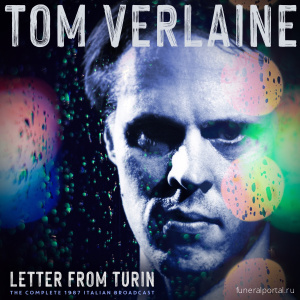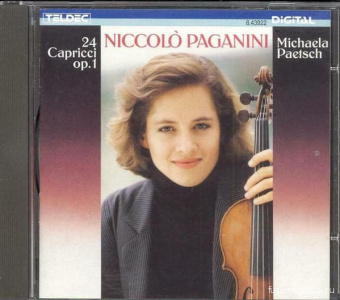
California law aims to require full disclosure online — but there's an exception that consumer groups want eliminated
By TERI SFORZA
Death isn’t cheap — and grief doesn’t pair well with comparison shopping.
Such was the calculus behind a California law pushing the funeral industry toward greater price transparency, which passed in 2013. As everyone, sooner or later, must die — and the average full-service funeral costs more than $7,000 — federal law already required funeral homes to provide detailed price lists to customers who walk through their doors.
California’s law propelled that into the 21st century by requiring price disclosure online as well, sparing mourners an arduous trek from funeral home to funeral home to compare prices. But the law gives funeral homes two options on how to do this: Either post their complete price list online for all to see, or list services offered and disclose that a full price list is available upon request.
Guess which of the two had the lowest prices.
An analysis by the Funeral Consumers Alliance, Consumer Federation of America and Consumer Action of California found that funeral homes that declined to post full price lists online charged much more than those that went open kimono — to the tune of more than 30 percent.
The consumer groups compared prices for three “bellwether” services in six major California markets: the basic service fee, which is essentially what funeral homes charge to cover overhead when buying a la carte; direct cremation; and immediate burial without a casket.
The median basic services fee for “price hiders,” as the consumer groups called homes that don’t post full price lists, was $1,835 — 36 percent higher than the median for “price posters” ($1,348), the study found.
Hiders’ median for direct cremation was $1,695 — 31 percent higher than that of posters ($1,295).
And for immediate burial without casket, hiders’ $2,595 median was 37 percent higher than the $1,900 median for posters.
The option to not disclose full price lists online was written into the law at the urging of industry lobbyists, said Joshua Slocum, executive director of the Funeral Consumers Alliance, and “materially undermines the law’s actual goal.”
The consumer groups call that a “loophole,” vocabulary that enrages some in the funeral industry who say they’re following the letter and spirit of the law.
Bottom line for consumers: “Prices vary so greatly that consumers can potentially save thousands of dollars on a funeral by shopping around,” said Alegra Howard, Consumer Action’s policy advocate, in a prepared statement. “It’s unfortunate that consumers need to comparison shop during an already stressful and upsetting time in order to avoid being fleeced. However, we recommend that consumers do just that, and begin their search with funeral homes that prominently post prices.”
The groups urge the California Legislature to eliminate the option to not post full price lists online.
‘Astonishing’ range of prices
The groups asked non-price-posting funeral homes for full price lists, most of which were received by email (but one came snail mail, which could be a distinct disadvantage for those truly shopping for a funeral).

Prices are posted on items in the shop at O’Connor Mortuary in Laguna Hills. (Photo by Ana Venegas, Orange County Register/SCNG)
The highest prices were logged at funeral homes in Newport Beach, Westwood in Los Angeles, Culver City, Fremont, Richmond and Sacramento, the groups found.
And there was an “astonishing” range of prices for similar services in the six geographical areas studied — the counties of Orange and Alameda, and the cities of Los Angeles, San Diego, Sacramento and San Francisco.
Basic service fees ranged from $250 to $4,370. Direct cremation, from $525 to $4,115. Immediate burial without casket, from $495 to $4,715.
And the 24 homes in the ask-for-the-price-list Dignity Memorial family charged the highest prices of all, the groups found. Dignity’s median basic services fee was 48 percent higher than that of posters, direct cremation was 31 percent higher, and immediate burial without a casket was 63 percent higher.
Dignity is owned by Service Corporation International. A spokesman objected to the nature of the study itself.
“Pricing alone does not provide consumers with enough information to adequately plan something as customizable and personal as a funeral service. It’s much the same as planning a wedding,” a company spokesman said by email.
“Online pricing characterizes funeral service as a commodity, which is incorrect. It ignores the fact that different providers offer an array of service levels, from facility features, products, and amenities, much like the example of brands in a hotel portfolio — from Courtyard Hotels to The Ritz-Carlton.”
SCI funeral homes serve more than 300,000 families a year, the company said, and its customer surveys show that price often is not the main consideration. Quality of service, provider reputation and location convenience ranked higher than price.
Comparing apples to apples
The consumer groups chafed at these explanations.
“This is an attempt to make the funeral transaction appear so confusing, so infinitely customizable, so perfectly personal that we can’t but throw up our hands in the air and say, ‘There’s no way to compare,’ ” said Slocum of the Funeral Consumers Alliance.
“Not true. A direct cremation at an SCI facility that may occupy a beautifully manicured lawn is the same exact service — with no additional ceremonies, and nothing different — as a direct cremation from a modest store front establishment. We can, in fact, compare apples to apples.”
SCI is implying that since more choices are involved than just price, price transparency doesn’t much matter, he said.
“We are not saying that only price matters,” Slocum said. “We are saying that price matters just as much as anything else, and consumers have the same interest in and right to fairly disclosed prices between competitors in funeral service as they expect in any other major purchase such as a car.
“For too long, the funeral industry has wanted price not to be a factor at all, because price-conscious consumers are much less easy to ‘sell’ than unaware consumers who are compromised by grief.”
The study is a follow-up on one from last fall, which found that many funeral homes failed to prominently disclose prices online.







